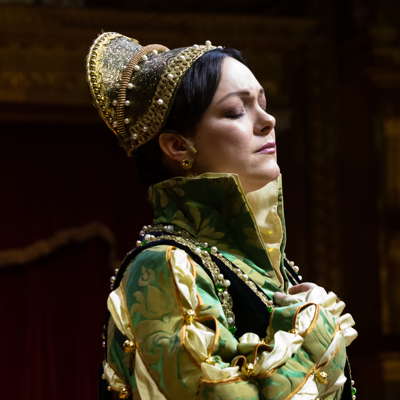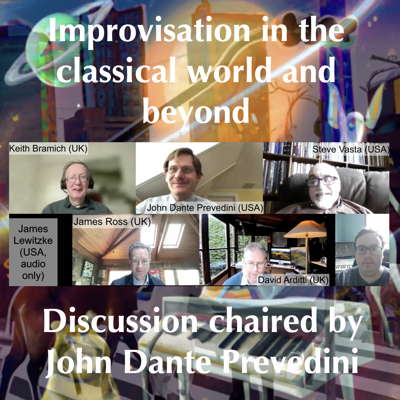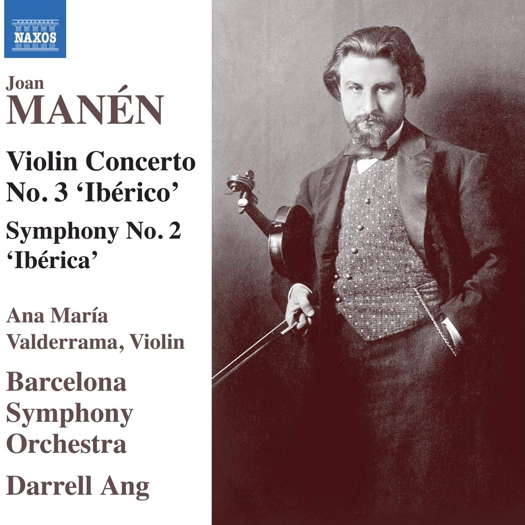 DISCUSSION: What is a work? John Dante Prevedini leads a discussion about The performing artist as co-creator, including contributions from Halida Dinova, Yekaterina Lebedeva, Béla Hartmann, David Arditti and Stephen Francis Vasta.
DISCUSSION: What is a work? John Dante Prevedini leads a discussion about The performing artist as co-creator, including contributions from Halida Dinova, Yekaterina Lebedeva, Béla Hartmann, David Arditti and Stephen Francis Vasta.
 FROM ROME: From December 2009 until March 2023, the late Giuseppe Pennisi sent us regular reports from the Italian opera and classical music scene.
FROM ROME: From December 2009 until March 2023, the late Giuseppe Pennisi sent us regular reports from the Italian opera and classical music scene.
 DISCUSSION: John Dante Prevedini leads a discussion about Improvisation in the classical world and beyond, including contributions from David Arditti, James Lewitzke, James Ross and Steve Vasta.
DISCUSSION: John Dante Prevedini leads a discussion about Improvisation in the classical world and beyond, including contributions from David Arditti, James Lewitzke, James Ross and Steve Vasta.

Passionately Colourful Orchestration
GERALD FENECH listens to music by Catalan composer Joan Manén
'Ana María Valderrama's rendition of the Concerto is technically superb, and there's a purity in her tone that you don't experience every day. Darrell Ang gives sympathetic support throughout.'
When one speaks about Spanish composers in modern times, names such as Isaac Albeniz (1860-1909), Enrique Granados (1867-1916), Manuel de Falla (1876-1943) and Joaquin Turina (1882-1949) readily come to mind. But Spanish music during this period can boast of a host of others who, though lesser known, have contributed immensely to the cause.
One of these is Joan Manén (1883-1971), who during his lifetime was nearly as famous as Pablo Casals, but whose music, after his demise, quickly fell into neglect. Manén was born in Barcelona on 14 March 1883, and when only three he started learning theory, solfege and piano with his father. At the age of five he started to receive violin lessons with several local fiddlers, but their efforts proved fruitless, as Manén adored the piano and it was the only instrument he wanted to excel in. Still, he eventually mastered the violin as well, and when he was seven he made his debut in Castellon, performing on both instruments.
By a strange twist of fate, Manén ended up being one of the great violin virtuosi of his time, and he can be specially proud of having made the first ever recording of the Beethoven concerto. He had a very full life, giving more than four thousand concerts or recitals, and travelled around the world five times, visiting, among other countries, Argentina, the USA, France, Poland, Germany, Austria and Portugal. During the First World War, Manén lost all his savings and to recoup his finances he embarked on an extensive tour of South and Central America, followed by a four-year stay (1921-25) in the States.
He was prolific on all fronts and wrote in all accepted genres. To his credit, he composed seven operas, two ballets, nine orchestral works - two of them symphonies - and numerous other works for soloist and orchestra, including three concertos, a concertino and five other pieces for violin as well as chamber, instrumental, vocal and choral works. He made many arrangements and transcriptions, and produced a number of books. He also contributed to several journals and founded the review 'Musica'.
The Violin Concerto No 3 (Iberico) was composed in 1940, and though it dates from those dark times, the piece is an overtly romantic work, brilliantly written and full of Iberian vitality that raises the pulse more than a notch.
The Second Symphony was written in Barcelona in 1954-58: the manuscript is dated 18 December 1955, but most probably the piece underwent several revisions. Scored for a very large orchestra and subtitled 'Iberica', the work alternates between the pastoral and the solemn encapsulated within a Spanish-flavoured structure.
Ana María Valderrama's rendition of the Concerto is technically superb, and there's a purity in her tone that you don't experience every day.
Listen — Joan Manén: Allegro energico (Violin Concerto No 3
(CD1 track 1, 0:06-0:57) ℗ 2020 Naxos Rights (Europe) Ltd :
Darrell Ang gives sympathetic support throughout. As to the symphony, Ang's reading is full of enthusiasm for the piece, and he certainly makes a strong case for the passionately colourful orchestration, which is the hallmark of much of the music of this period to come out from Spain.
Listen — Joan Manén: Allegro molto (Symphony No 2
(CD2 track 4, 9:43-10:33) ℗ 2020 Naxos Rights (Europe) Ltd :
Sound and notes are just splendid.
Copyright © 5 January 2021
Gerald Fenech,
Gzira, Malta

CD INFORMATION - JOAN MANÉN: VIOLIN CONCERTO NO 3; SYMPHONY NO 2
MORE CLASSICAL MUSIC ARTICLES ABOUT SPAIN


